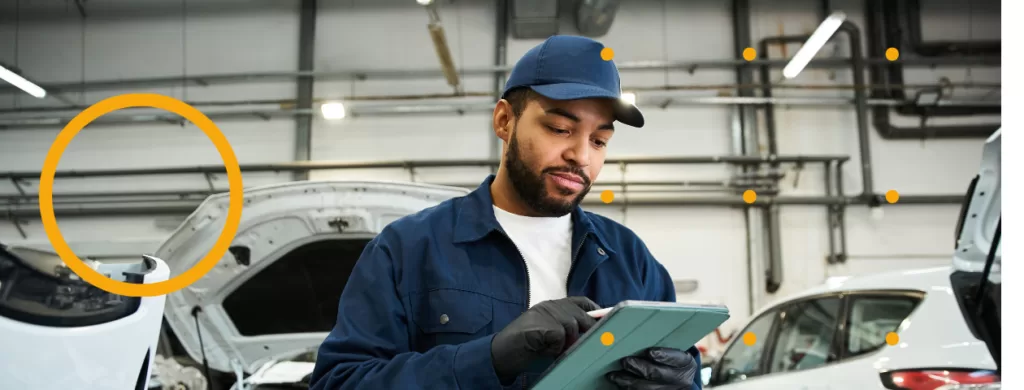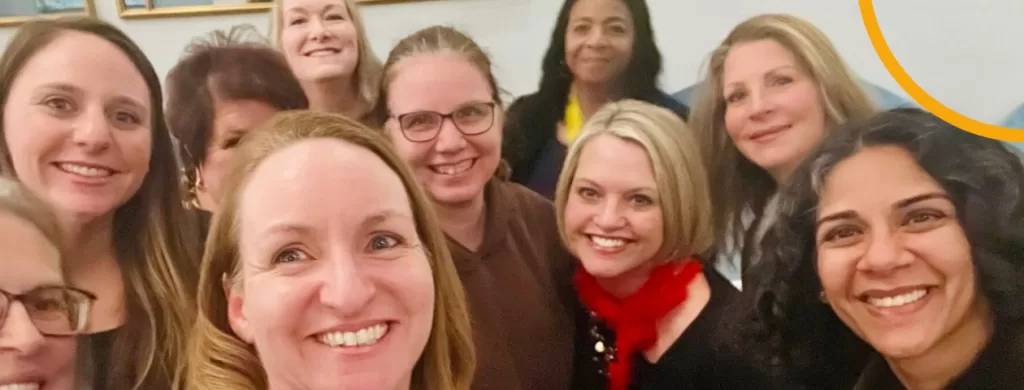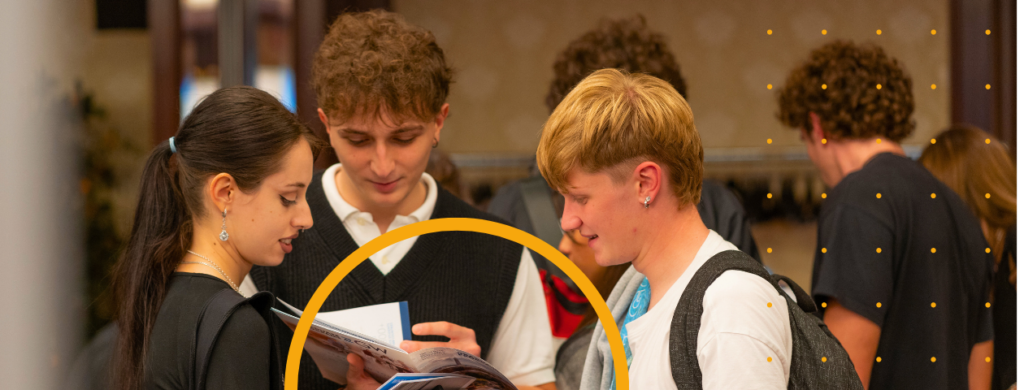
For QS Insights Magazine, Julia Gilmore explores the rise of entrepreneurial spirit among students and how universities are fostering innovation and business acumen.
Universities are melting pots for innovation, producing cutting edge research that changes the way we think about the world, and bringing the best and brightest minds together in the pursuit of knowledge. Under these circumstances, it’s unsurprising that universities are also often hubs for entrepreneurship, with students, both current and former, utilising the know-how and facilities offered by higher education institutions to set up their own businesses.
Changing the world, one idea at a time
In times of upheaval and change, many aspiring entrepreneurs are focusing on making the world a better place through their innovative business ideas, often based on challenges they’ve faced in their own lives.
Former tech consultant and Durham University graduate Ofentse Lekwane was inspired to return to her alma mater to establish her startup Wakari based on her lived experience with disabilities in the corporate world. Wakari is a practical accessibility index designed to assess, measure and enhance an organisation’s advancement towards disability inclusion, and Lekwane was supported in developing the tool at Durham’s Venture Lab, along with mentor Joanna Berry.
She admits that taking the leap into founding her own business was not easy: “Part of my personality is that I’ve always loved entrepreneurship, but I’ve always been very risk averse, and I couldn’t really find the time when I was ready to quit my 9-5 and go straight into entrepreneurship.
“I responded to a request from Durham for alumni business proposals which gave me the perfect reason to start [Wakari] – it allowed me to take time; six months of a lot of work, experimentation, advice from business practitioners, and support to start a business.”
Lekwane has received funding from Innovate UK, the UK government innovation agency, to continue to develop Wakari’s important work towards building more inclusive workplaces. The connections that she’s made through this have been invaluable: “Entrepreneurship can be quite lonely; you have to wear so many hats – every day you’re finding out the things you’re doing wrong! But the magic of the [Innovate UK] network is that you’re not alone…it’s about give and take.”
“Entrepreneurship can be quite lonely; you have to wear so many hats – every day you’re finding out the things you’re doing wrong!“
A personal connection was also what inspired Samuel Tecuala in founding Dehusk, a sustainable coconut milk brand, after coming to terms with his own lactose intolerance – an intolerance he found he shares with more than 80 percent of Asians. Tecuala was also concerned about the impact of the dairy industry on the planet, with a litre of dairy milk creating two to five times more carbon footprint than any plant-based milk.
As a student on King’s College London’s Business Management bachelor’s degree, Tecuala was supported along the way in founding his business by the university. He enthused about the opportunities studying at the prestigious London institution have afforded him:
“The prestige of a King’s education and the networking opportunities I get to access because of the amazing community King’s cultivates… is something I continue to leverage when talking to key stakeholders of Dehusk, whether investors or customers.”
Last year, Dehusk was named one of the top 100 startups in the Philippines, something that made Tecuala feel “shock, warmth, and pride”. He comments: “The recognition is a validation that my conviction of moving back [to the Philippines] to hopefully create a significant impact in my community is applauded by the country’s business and thought leaders and our mission to solve the problems we try to solve is recognised.”
From the lecture theatre to the boardroom
Entrepreneurship is by no means limited to those with a business background, with many students from other disciplines utilising the skills and knowledge gained in their university subjects to inform their startups.
Cheryl Tang is the co-founder of TrialeX, and a postdoctoral researcher at the University of Oxford. TrialeX is aimed at driving medical innovation and progress by streamlining and enhancing access to clinical trials, and was inspired by inefficiencies Tang herself saw during her PhD. She says: “We want to build a platform that will bridge the gap between scientists and participants and to allow them to understand more about clinical trials, remove any stigma and enhance recruitment and retention.”
Tang and her co-founders have received support from Oxford’s Saïd Business School, which “paid for me to attend women in entrepreneurship courses, where they select a small group of individuals that would like to learn about entrepreneurship, especially those in STEM, and that’s where I met my co-founders”.
She adds: “Despite the fact that we are not from the business school, there are lots of programs that bridge the gap between people that are not within the business school ecosystem. They are trying to reinforce this intra-departmental collaboration, which I find really helpful.”
Another student who used their scientific know-how to start a business is Guy Sandelowsky, founder of plant-based dog food brand Omni. Prior to starting an MBA at Imperial College London’s business school, Sandelowsky was a veterinarian for 10 years.
“Being a clinician was rewarding, but I recognised that my impact was limited to the animals I would treat directly,” says, adding that through the business, he felt could have an even bigger positive impact.
“Combining my clinical expertise with business know-how would allow me to change the lives of thousands and even millions of pets, for the better. It was this vision that drove me to undertake an MBA, and I chose Imperial due to the highly specialised and world-renowned entrepreneurial focus of the business school.”
Sandelowsky found the core business modules of his MBA (including accounting and marketing) “vital” when starting his own company, and that he was able to “build on these foundations by choosing electives specific to what I needed for Omni, such as how to internationalise the business, a deep dive into consumer behaviour and how to build a disruptive brand that was going to change the sector for good”.
Mentorship fosters success
Something that is made eminently clear when speaking to these entrepreneurs is that they have a great deal of gratitude towards the educational institutions who have supported and mentored them along the way.
Dries Dederen and Just Goossens met at Netherland’s Rotterdam School of Management (Erasmus University), and, alongside their own separate businesses, started software development company Zalm Partners together. Dederen explains: “We met on the Talented Student Entrepreneur program, and thought: you’re a high performer, I’m a high performer, let’s ‘high perform’ together! So, we set up a business together because of that program.”
They credit the program at RSM with not only bringing them together as business partners but supporting their businesses with study advisors, office space and networking events. In fact, Dederen and Goossens will be co-hosting the Talented Student Entrepreneur Program this year with RSM, sharing their expertise and offering mentorship to the next generation of startup co-founders. Dederen comments that in their office currently they are the youngest business owners, and that they’re looking forward to “getting in touch with other student entrepreneurs with the same vision and passion”.
“Self-belief is a tough thing to create for yourself, it’s really helpful to have somebody beside you who’s saying, ‘I believe in you, I know you can’.“
Joanna Berry is the Associate Dean, External Engagement for the Faculty of Business and Professor of Entrepreneurship at Durham University in the UK, taking a keen interest in teaching and mentoring students (including Wakari’s Ofentse Lekwane) to reach their full potential in business. Berry is keen to emphasise that Durham doesn’t see entrepreneurship as limited to the business school, noting that: “Right from day one, when they come into the university, we are careful to try and ensure that they understand that entrepreneurship is a state of mind as much as a set of activities, and that it’s something that is accessible whoever you are.
“We try very hard to ensure that we expose them to the world of entrepreneurship, not just through their modules and the stuff that we teach them, but through master classes, workshops, guest speakers, factory visits, you name it.”
Durham University’s Venture Lab is a purpose-built space for entrepreneurship, enabling entrepreneurial students and graduates to ‘connect, collaborate and form a community.’ Berry is enthusiastic about how the Venture Lab enables students and graduates to grow their ideas into fully-fledged businesses:
“You need to get to know people and get under their skin to find out what they really want in order to connect them properly. That’s one of the things that the Venture Lab does extremely well. It gets to know its students. It gets to know their personal drivers, what their motivations are, what their real responsive sort of points are, and then puts them in touch with people who can really help them.”
Berry’s own mentorship duties are very important to her, and her commitment to helping would-be entrepreneurs, particularly women who may be suffering from ‘imposter syndrome,’ really showcases just how vital having someone on your team at a university can be when starting a new business venture:
“Self-belief is a tough thing to create for yourself, it’s really helpful to have somebody beside you who’s saying, ‘I believe in you, I know you can’. That to me is the important bit of mentoring. It’s a bit like teaching: to teach is to learn twice, to mentor is to learn twice as well, because I learn just as much from mentoring people as I do from my own mentors.”



